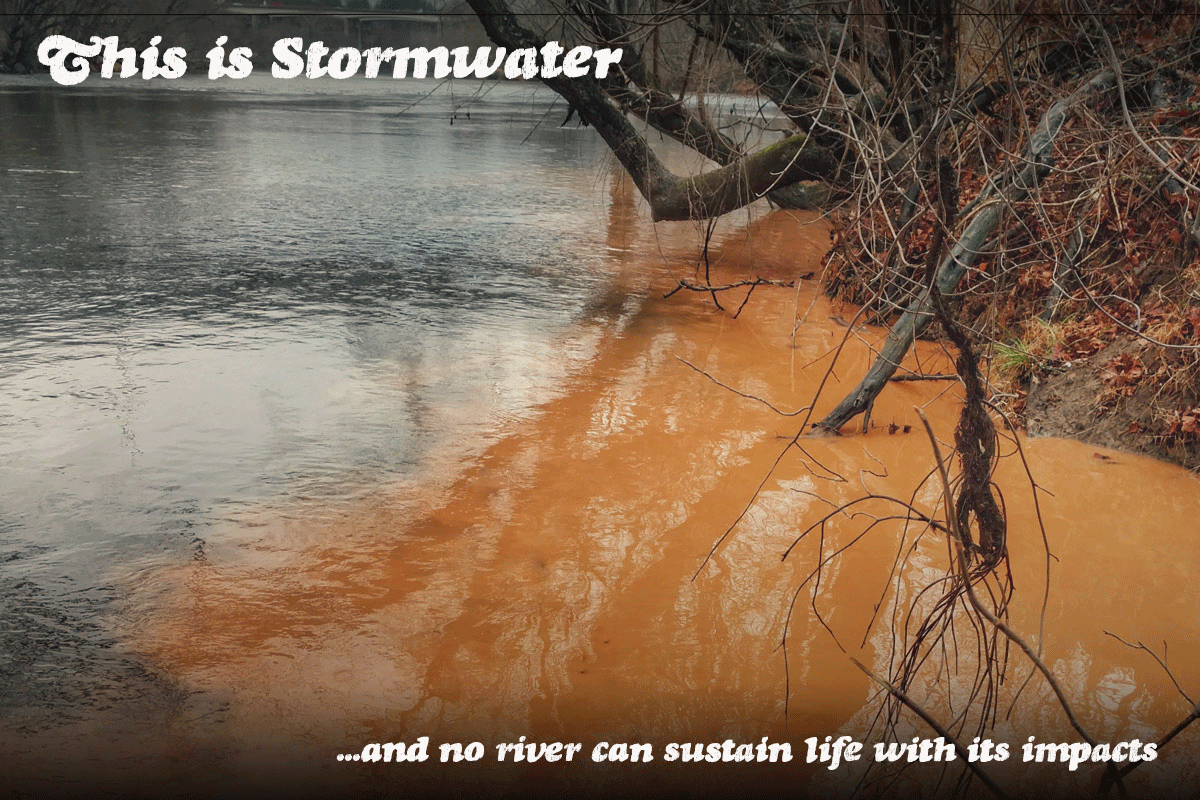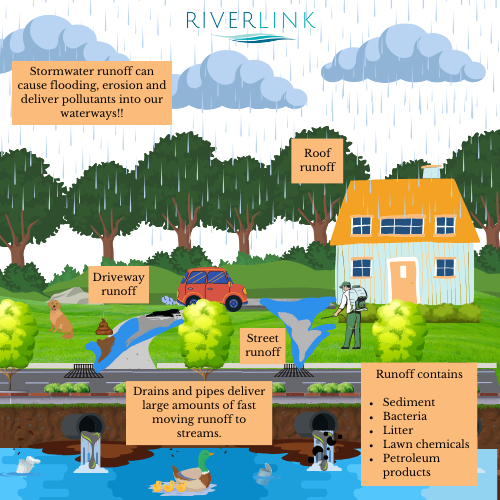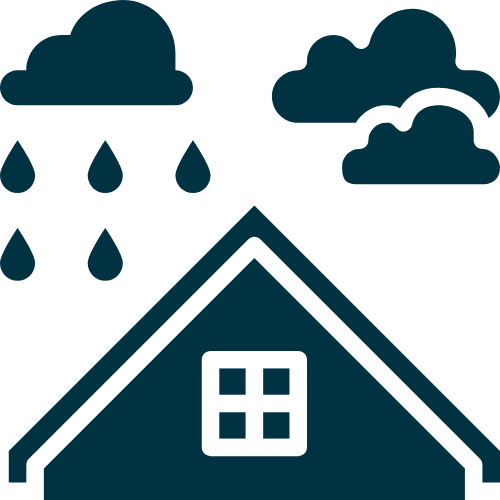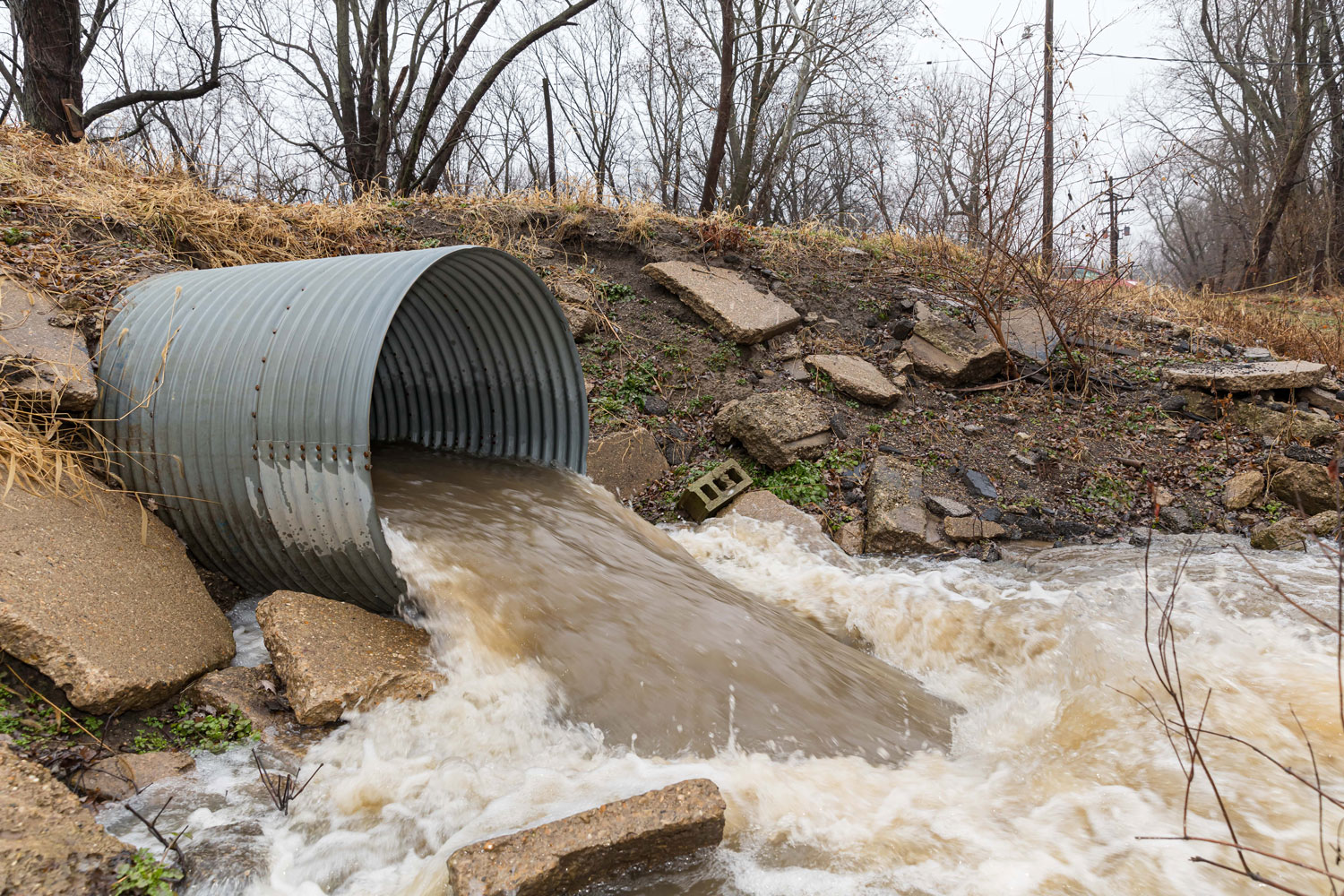|  | | Untreated rainwater (also known as stormwater) flows off hard surfaces such as parking lots and roofs, and carries sediment, pollutants and bacteria with it, negatively impacting water quality. The sheer volume and velocity of rain runoff is the biggest threat today to the French Broad River. |
|
|
| Untreated rainwater (also known as stormwater) flows off hard surfaces such as parking lots and roofs, and carries sediment, pollutants and bacteria with it, negatively impacting water quality. The sheer volume and velocity of rain runoff is the biggest threat today to the French Broad River. |
|
|
| Our campaign includes educational resources and action steps everyone can take to protect our rivers and streams here in Western North Carolina. You’ll also find real-life stories of local people taking action to reduce rain runoff at their homes and businesses. We want YOU to join us! |
| |
|
|  |  | We Can Manage Stormwater Better In 2022, 19 miles of the French Broad River and two more of her urban tributaries were classified as “Impaired” under the Clean Water Act. Our built environment—including roofs, streets, and parking lots—directs stormwater untreated to local streams, often in large quantities, with unsustainable impacts. We need to reduce runoff by keeping rainwater on site where it can soak into the soil for treatment as nature intended. It may be as simple as directing your roof’s downspout onto the lawn instead of the driveway or street. Rain gardens, tree plantings, green roofs, and permeable paving are examples of green infrastructure practices that can be used to soak up rainwater. RiverLink’s WaterRICH program can help you address your unique situation. |
| |
|
|  |  | Did You Know Stormwater is the #1 threat to the health of the French Broad River. In one year, a 2,000- square-foot roof can generate over 60,000 gallons of stormwater. How big is your roof? Buncombe County has over 100,000 roofs, receiving 45 inches of rain annually and generating a staggering 8.6 billion gallons of roof runoff. That’s equivalent to filling over 13,000 Olympic swimming pools, stretching end-to-end across North Carolina! |
| |
|
|  |  | Where Does All This Rainwater Go? - Flooding: Stormwater runoff contributes to flooding, especially during intense downpours.
- Erosion and Sedimentation: Too much runoff causes soil erosion, resulting in property loss and destruction of aquatic habitats.
- Pollution: When runoff flows over roads, parking lots and other developed areas, it collects pollutants and delivers them untreated to our waterways.
- Common Pollutants: Sediment, road salt, fuel residues, bacteria, and other substances harm aquatic life and pose threats to recreation and human health.
As Western North Carolina continues to grow its population and economy, the volume of rain runoff is increasing—a dramatic impact which is only being heightened in a time of climate change. |
| |
|
|  | Meet the Locals Making a Difference Each month, our Stormwater Diaries will share stories of WNC locals who are using green infrastructure to make a difference. This month, meet Glenda, a longtime Asheville resident who enjoys the benefits of her rain garden and the conversations it starts with her neighbors. |
|
|
| Meet the Locals Making a Difference Each month, our Stormwater Diaries will share stories of WNC locals who are using green infrastructure to make a difference. This month, meet Glenda, a longtime Asheville resident who enjoys the benefits of her rain garden and the conversations it starts with her neighbors. |
|
|
| |
|
|  | How Can I Get Involved? - Educate yourself and your friends and neighbors. Check out and share the resources linked below.
- Follow us on Facebook and Instagram and share your live stormwater observations on your socials! Tag us @river.link #ReduceRainRunoff #StormwaterWednesday
- Adopt a storm drain near you. Watch what goes in when it's raining hard--then look for opportunities to clean up the flow, which is heading straight for the nearest stream.
- Disconnect your downspout! Direct your stormwater to a green area where it can soak in.
|
| | | |
|
| | Thanks for being part of our French Broad River community! |
| RiverLink promotes the environmental and economic vitality
of the French Broad River and its watershed. Please join us with a gift today! |
| |
|
| |
|
|